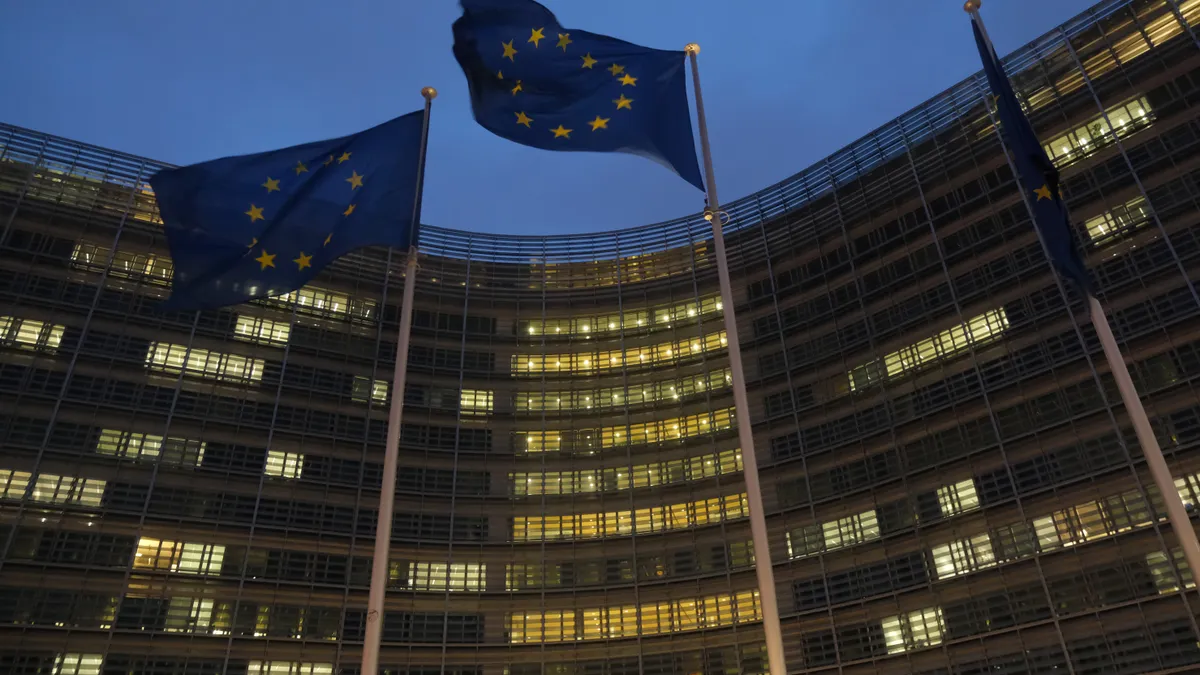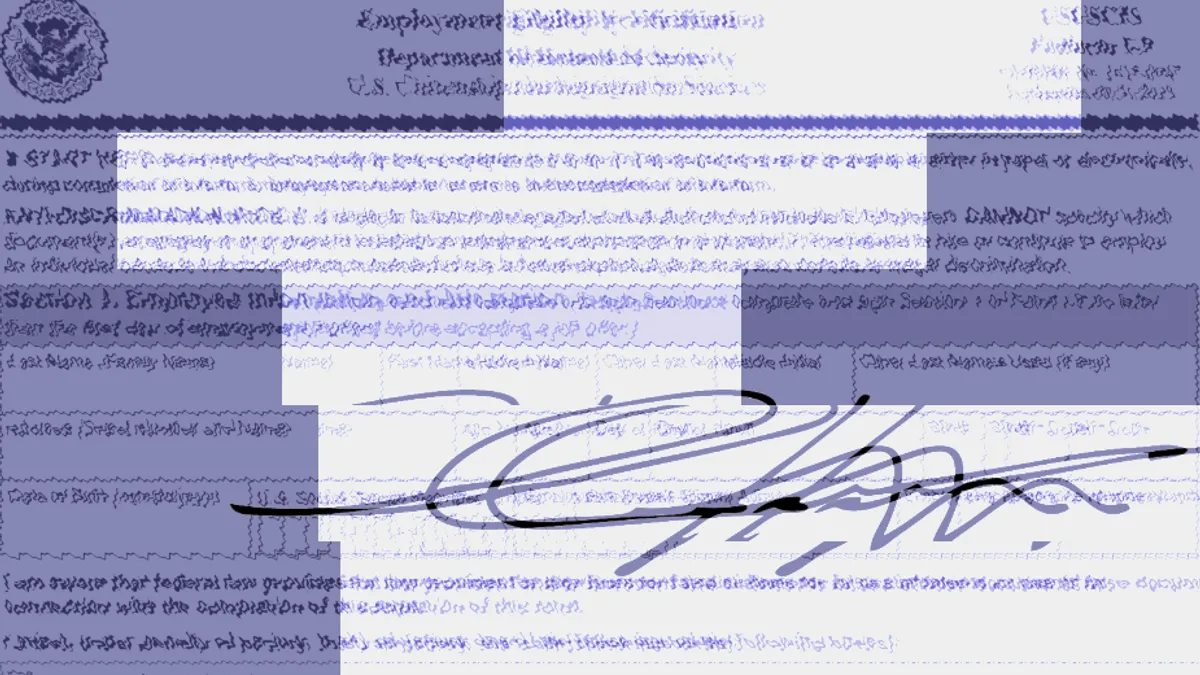The European Union thinks Apple, Meta and Alphabet might be acting in self-serving ways in violation of the Digital Markets Act, which took effect three weeks ago, despite the companies presenting reports saying they’re abiding by the law.
The regulator announced March 25 it’s investigating whether fees and steering restrictions that Apple and Alphabet impose on companies doing business on their platforms are allowed under the new law. It’s also looking at whether Apple is making it easy enough for consumers to swap out the company’s search and photos apps, among others, for ones the users prefer.
It’s also looking at whether Meta is violating the DMA by requiring consumers to pay a subscription fee to get an ad-free experience on Facebook and Instagram. And it’s looking at whether Alphabet is still giving a preference to its own services when it provides Google search results.
“These are the cases where we … have concrete evidence of possible non-compliance,” Thierry Breton, the EU’s internal market commissioner, said in announcing the investigations, “and this in less than 20 days of DMA implementation.”
Integral platforms
The EU passed the DMA in 2022 to help ensure so-called gateway companies — companies whose platforms are considered central to the digital economy — don’t leverage their market dominance to disadvantage other companies that rely on them in their business.
The six gateway companies are Alphabet, Amazon, Apple, Meta, Microsoft and ByteDance, the China-based company that owns TikTok.
In a sense, the EU is treating the companies like utilities because of the way other companies have built their businesses on their platforms and therefore are dependent on them for making money. Although they’re private businesses with their own profit motive, they have a responsibility under the new law not to leverage their platform advantage in ways that violate competition and privacy laws, among other things.
The companies were required to submit reports by March 7, the law’s effective data, detailing how their practices put them in compliance with the law, but the EU says it’s received enough complaints that it thinks the companies are maintaining prohibited practices.
“Feedback tells us that certain compliance measures fail to achieve their objectives and fall short of expectations,” Margrethe Vestager, the EU’s executive vice president, said in a statement.
Anti-steering
The EU says it thinks Apple and Alphabet might be violating anti-steering restrictions by not letting companies that use their platforms engage directly with their users. Instead, companies are forced to engage with their users through their apps, making it hard for them to steer their users to more affordable ways to get their services. Apple and Alphabet also might be charging impermissible fees.
“Apple and Alphabet still charge various recurring fees and still limit steering,” the EU says. “Consumers must have access to all the necessary information about their choices. Gatekeepers can no longer prevent their business users from informing their users within the app about cheaper options outside the gatekeeper's ecosystem.”
The EU has already hit Apple with a fine — $1.9 billion — for what it says is an anti-steering violation involving music streaming apps like Spotify. The EU says Apple doesn’t let companies like Spotify speak directly to its uses or let them sign up for music streaming outside the app.
The hefty fine was imposed in early March, just before the DMA law took effect, which Apple says was a deliberate effort to penalize it just as the rules were changing.
“This decision is not grounded in existing competition law,” Apple said when the fine was imposed. “It’s an effort by the Commission to enforce the DMA before the DMA becomes law.”
Closed systems
The EU also says it thinks Apple hasn’t done enough to make it easy for consumers to use alternative apps on the iPhone and iPad as their default choices. Right now, Google is the default search engine, for example, and changing that is not a straightforward process, and Apple’s photo app is the default app, and that can’t be changed.
“Gatekeepers have an obligation to enable easy uninstallation of apps and easy change of default settings,” the EU says. “Apple's compliance model does not seem to meet the objectives of this obligation.”
Privacy
Meta is in possible trouble for requiring users to pay a subscription fee if they want an ad-free experience on Facebook or Instagram. By forcing users to make that kind of choice, the EU says, the company could be violating privacy laws that give users an affirmative right to approve, or not approve, the use of their personal data for advertising and other purposes. Meta’s subscription offer forces users to pay for the right to opt out of ad tracking.
“Gatekeepers must obtain users' consent to use their personal data across different services,” the EU says. “And this consent must be free.”
Search results
Alphabet’s dominance in search through Google is also under investigation. The EU says the company continues to give a preference to its own services in search results.
“We are concerned that Alphabet's own services, such as Google Shopping, Google Flights and Google Hotels, still benefit from a preferential treatment,” the EU says. “It seems that third-party services are not treated in a fair and non-discriminatory manner.”
Document retention requirement
The EU says it’s giving itself a year to look into these practices and that it might add additional violations if it uncovers more problems. To help it in its investigations, it’s exercising what it says is a document retention requirement that it hasn’t been able to use in traditional antitrust cases but that it can under the DMA.
“We [are ordering] gatekeepers to retain certain documents,” the EU says. “This will allow us to access the relevant evidence in our current and future investigations. Such retention orders are a new tool provided by the DMA. They extend beyond the investigations that we are opening today, and specify what kind of documents that [the companies] have to preserve.”
Fines can be steep, up to 10% of the company’s total worldwide annual turnover, or up to 20% in the event of repeated infringements.
“Should we have indications of ineffective compliance or possible circumvention of the DMA, we will not hesitate to make use of the DMA's full enforcement toolbox, including innovative tools that did not exist in antitrust enforcement such as the retention orders,” the EU says. “And gatekeepers will face heavy fines.”
The DMA only impacts the companies’ operations to the extent they’re accessed by EU companies and consumers, but many of the same practices are in the cross hairs by U.S. regulators as well. Among other things, the Department of Justice has just sued Apple on antitrust grounds for the way it treats app developers, and Google’s search and ad-platform business are the subject of lawsuits as well.



















